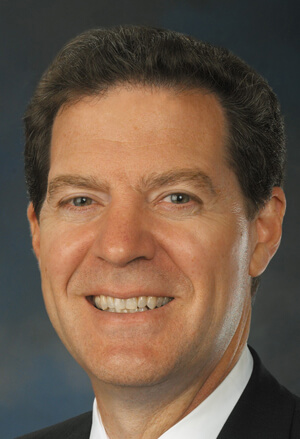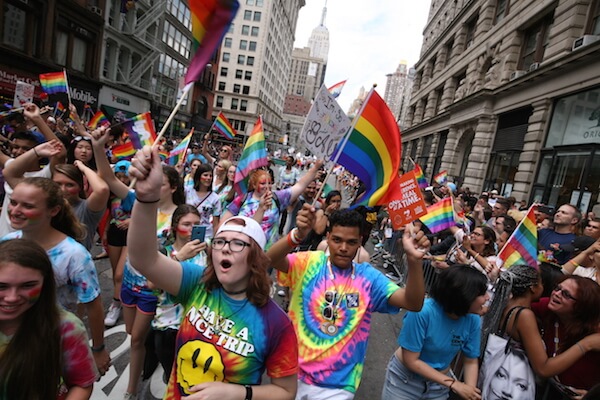Kansas Governor Sam Brownback. | US SENATE
BY ARTHUR S. LEONARD | The Supreme Court, at the close of business on November 12, denied a request for giving the State of Kansas a stay of a district court marriage equality ruling while it seeks review by an appeals court.
The high court’s action is in line with how it has responded to similar recent requests –– ever since it announced on October 6 that it would not hear appeals of gay marriage vicitories in the Fourth, Seventh, and 10th Circuits.
What’s new and interesting about the November 12 decision is that for the first time, we see the high court's split over the question. Though the Supreme Court provided no written opinion, it did announce the vote on whether to grant Kansas the longer stay –– 7-2, with Justices Antonin Scalia and Clarence Thomas in favor of doing so.
County clerks, hard-right Governor Sam Brownback hope justice delayed can be justice denied
On November 4, District Judge Daniel D. Crabtree ruled that Kansas’ ban on same-sex marriage was unconstitutional, but stayed his order until November 11 to give the state time to seek a stay from either the 10th Circuit or the Supreme Court. Crabtree rejected the state’s argument that he should stay his ruling until Kansas has a chance to have it reviewed by an appellate court –– which makes sense since it is in the 10th Circuit, whose pro-marriage equality ruling the Supreme Court had already let stand.
The 10th Circuit turned down the request for a longer stay on November 7. Though the Supreme Court extended Crabtree’s stay briefly to consider both sides’ arguments, by November 12 it was prepared to resolve the question. Crabtree’s opinion now goes into effect.
Some in Kansas are arguing, however, that since the clerks in Douglas and Sedgwick County (Lawrence and Wichita, respectively) were the only ones named as defendants, nowhere else in the state are licenses required to be issued. This is silly and obtuse, but can quickly be cured. Crabtree issued a temporary injunction against enforcing the gay marriage ban, and the American Civil Liberties Union, representing the plaintiffs, can now go into court requesting that the injunction be made permanent and that the order be framed to bind all Kansas state officials, in compliance with the 10th Circuit’s earlier ruling.
Governor Sam Brownback, a Republican and longtime social conservative, in seeking review by the full 10th Circuit, has emphasized his oath to protect and defend the Constitution of the State of Kansas, which bans same-sex marriage. He conveniently overlooks that his oath of office also requires him to protect and defend the Constitution of the United States, which overrides the Kansas Constitution where there is any conflict. Seeking appellate review from the same judicial body that has twice rejected all the arguments being raised by Kansas in its earlier decisions in the Utah and Oklahoma marriage cases seems like a delaying tactic more than anything else.
So why seek delay? Obviously, to try to string things out in the hope that the Supreme Court will eventually affirm the Sixth Circuit Court of Appeals’ November 7 ruling that upheld bans on same-sex marriage in Ohio, Michigan, Tennessee, and Kentucky. Brownback likely hopes Kansas will never have to allow same-sex marriages. But courts do not look favorably on legal maneuvers taken primarily for purposes of delay.






































